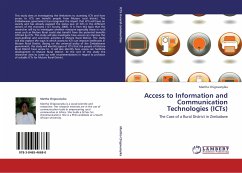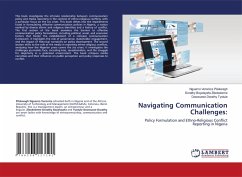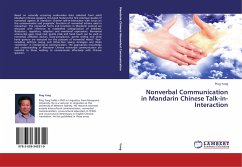
Information Communication Technologies in Nigeria
Penetration of Global System for Mobile Communications
Versandkostenfrei!
Versandfertig in 6-10 Tagen
39,99 €
inkl. MwSt.

PAYBACK Punkte
20 °P sammeln!
This research studies the diffusion new information and communication technologies (ICTs) in Nigeria. Findings are that inspite of massive investment in ICTs, the quality of life of the people is unchanged.One explanation for this was that the diffusion of ICT initiatives tends to start with sophisticated users rather than the vulnerable groups who need them the most. Technological development is therefore informed by choices. The researcher develops an interaction paradigm to show that technological development is modified by choices among actors. It is this interplay or power relations among...
This research studies the diffusion new information and communication technologies (ICTs) in Nigeria. Findings are that inspite of massive investment in ICTs, the quality of life of the people is unchanged.One explanation for this was that the diffusion of ICT initiatives tends to start with sophisticated users rather than the vulnerable groups who need them the most. Technological development is therefore informed by choices. The researcher develops an interaction paradigm to show that technological development is modified by choices among actors. It is this interplay or power relations among various actors that ultimately determines the extent to which a technology achieves its intended goals. The finished work provides a framework to guide policy decisions on the democratisation of ICT use in countries.The work is also invaluable to the academia because the "interaction pardigm" it proposes, illustrates the relationship between technology and society. The study should also be useful to the wider research community because it demonstrates the potency of qualitative research for exploring technological settings.












